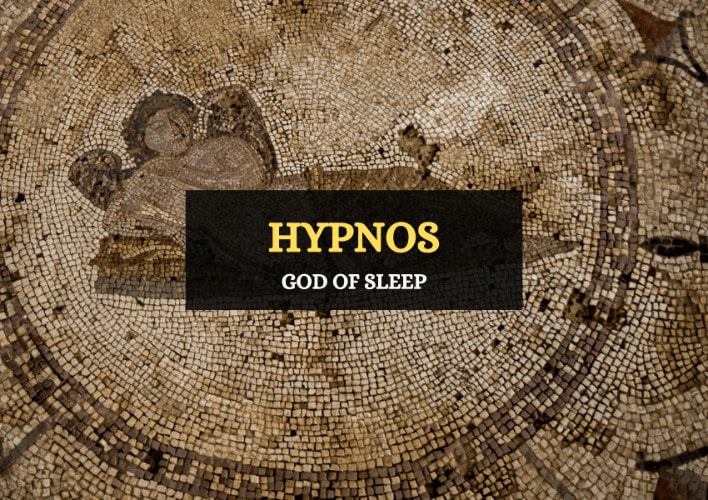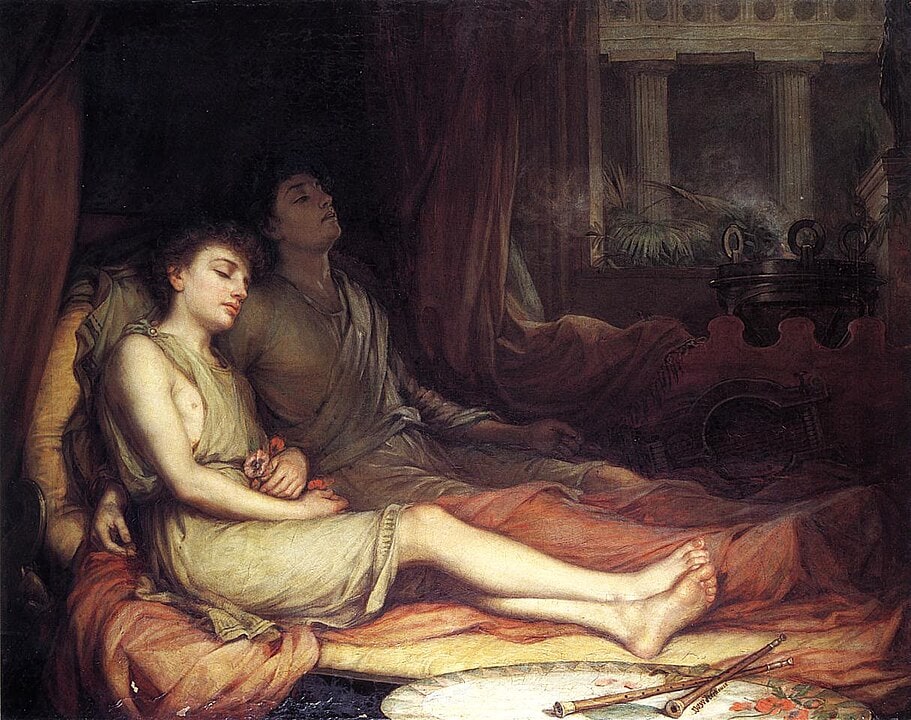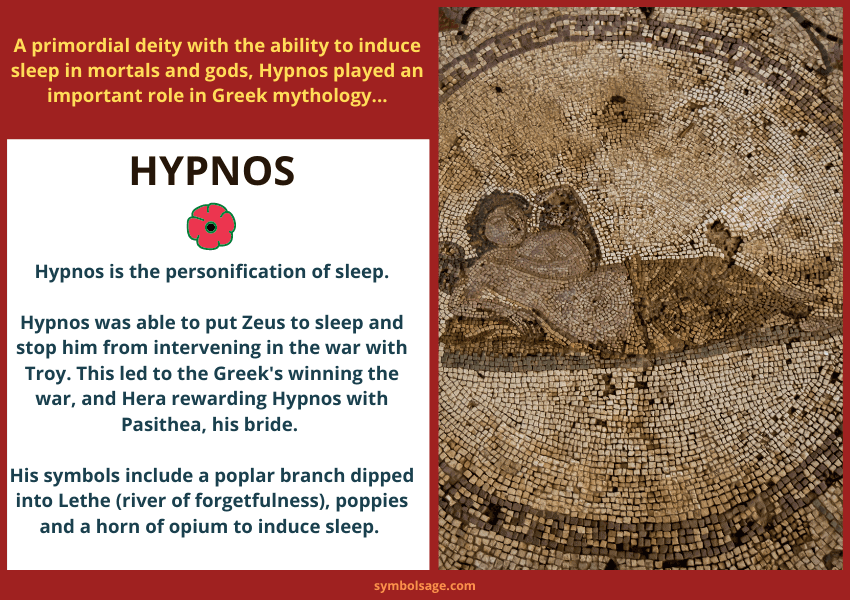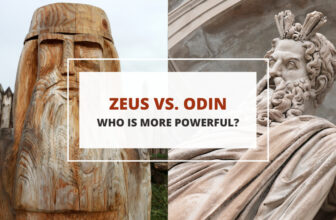
Table of Contents
Among the great Greek figures, Hypnos (Roman counterpart Somnus), the god of sleep, had power over both men and gods. Although he may not be one of the most important gods in the Greek pantheon, he was powerful enough to put Zeus to sleep. Here’s a closer look at Hypnos, a primordial deity.
The Personification of Sleep
In Greek mythology, Hypnos was a primordial deity, the first celestial beings who lived on the earth. As the god of sleep, he had the power to induce sleep on all creatures.
Hypnos is said to be the son of Nyx, goddess of night, and the twin brother of Thanatos, the god of death. In some accounts, he is said to have no father; some others state that he was the son of Nyx and Erebus.

According to some sources Hypnos lived in a dark cave in the underworld with Thanatos. The cave was out of reach of sunlight and had poppies, flowers which are known to induce sleep, at the entrance. However, in the Iliad, Homer places his dwelling in the island of Lemnos. According to Ovid’s Metamorphoses, he lives in a cave in the land of the Cimmerian and that the Lethe, the river of forgetfulness and oblivion, crosses to the cave.
In terms of appearance, Hypnos is depicted as a young man with wings on his shoulders or his head. He was normally seen with a horn, the stem of a poppy, or with water from the Lethe to induce sleep.
Hypnos’ Family
Hypnos was married to Pasithea. Their three sons, named Morpheus, Icelus, and Phantaus were the Oneiroi, who were the dreams in Greek mythology.
According to some myths, Morpheus, who created dreams about men, was the chief of the three. The other two, Icelus and Phantasus, created dreams about animals and inanimate things.

Hypnos and Zeus’ Sleep
One of the most famous stories connected to Hypnos relates to his ability to put even the great god Zeus to sleep, not once but twice. On both occasions, he did this as a request from Hera.
Hypnos Puts Zeus to Sleep
Hera hated Heracles, an illegitimate son of Zeus, and wanted to have him killed, especially after his role in sacking the city of Troy. She requested Hypnos to put Zeus to sleep so that she could act against Heracles, without Zeus’ intervention. Once Hypnos had Zeus fall into sleep, Hera was able to attack.
According to Homer, Heracles was sailing home from Ilion after sacking Troy when Hera unleashed the strongest winds towards the oceans he was crossing. However, Zeus’ sleep was not as deep as expected, and the god awoke while she was still acting against his son.
Infuriated with Hypnos, Zeus looked for him in his cave to make him pay for his part in Hera’s scheme, but Nyx defended her son. Zeus was conscious of the power of the night and decided not to confront her. Some other accounts say that Nyx hid Hypnos to protect him from the wrath of Zeus.
Hypnos Puts Zeus to Sleep Again
Hypnos plays a decisive role in Homer’s Iliad since thanks to him, the gods were able to take part in the war of Troy. Homer’s Iliad is known to have portraited not only the war of the mortals but also the conflict among gods, who could not agree on which side to take. Zeus had decided that the gods were not to get involved in this war, but Hera and Poseidon had other plans.
According to Homer, Hera visited Hypnos to ask him to put Zeus to sleep once again. Remembering how the last attempt had ended, Hypnos refused. Hera tried to bribe Hypnos, offering him a golden throne and certain other objects that would be designed by her son Hephaestus, the craftsman of the gods. Hypnos refused one more time. After this, Hera offered him the Grace Pasithea for his wife and Hypnos agreed.
Hera then went to Zeus with a dashing beauty that he could not resist and once they had lain in bed together, Hypnos managed to put the god to sleep without him noticing it. Hypnos himself flew to Poseidon’s location to inform the god of sea that Zeus was asleep and that it was the moment to push the offensive forward, helping the Akhaian ships against the Trojans.
Zeus never found out that Hypnos had tricked him, and the war changed to favor Hera, with the Greek’s eventually winning the war.

To Wrap It Up
Hypnos remains an important figure in Greek mythology, known for his powers over sleep and his role in the war with Troy. The very word hypnos has entered the English language to mean a deep sleep.








